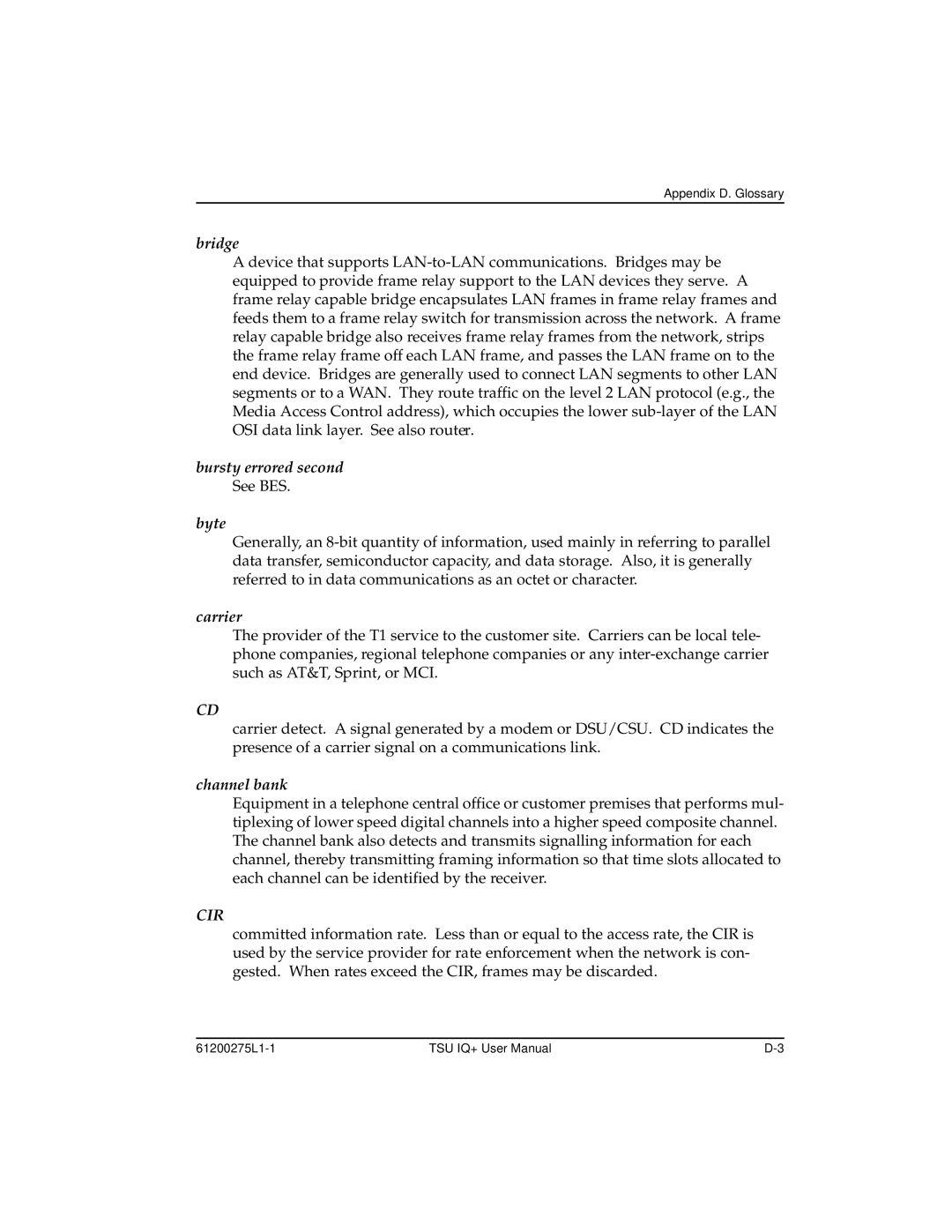
Appendix D. Glossary
bridge
A device that supports
bursty errored second See BES.
byte
Generally, an
carrier
The provider of the T1 service to the customer site. Carriers can be local tele- phone companies, regional telephone companies or any
CD
carrier detect. A signal generated by a modem or DSU/CSU. CD indicates the presence of a carrier signal on a communications link.
channel bank
Equipment in a telephone central office or customer premises that performs mul- tiplexing of lower speed digital channels into a higher speed composite channel. The channel bank also detects and transmits signalling information for each channel, thereby transmitting framing information so that time slots allocated to each channel can be identified by the receiver.
CIR
committed information rate. Less than or equal to the access rate, the CIR is used by the service provider for rate enforcement when the network is con- gested. When rates exceed the CIR, frames may be discarded.
TSU IQ+ User Manual |
